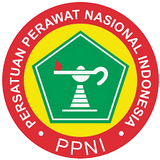The Effect of Health Education About Handwashing on the Level of Knowledge and Handwashing Behavior of Patient Families at the Mukomuko Regional General Hospital in 2022
Abstract
Hand washing has health benefits, namely it can reduce the number of microorganisms, reduce germs found on dirty hands, so as to reduce the occurrence of infection. The goal of health education is to change people's or society's behavior from unhealthy behavior to healthy behavior. To change one's behavior can be done by teaching and learning. The role of nurses as educators can be done by helping clients to increase health knowledge. The purpose of this study was to determine the effect of health education about hand washing on the level of knowledge and hand washing behavior of the patient's family at the Mukomuko Regional General Hospital in 2022. The design in this study used a Quasy Experimental One-group pre-post test design method. Sampling used purposive sampling technique, the number of respondents was 26 patients' families who were in the internal medicine inpatient room at the Mukomuko Regional General Hospital. The independent variable in this study is the Influence of Health Education about hand washing while the dependent variable is knowledge and behavior of hand washing. Statistical tests in this study used the paired t-test. The results showed that there was an effect of health education on hand washing on the level of knowledge and hand washing behavior of the patient's family with a p value of 0.000 < α = 0.05. It is expected that nurses have a role in continuing to remind patients and families to practice hand washing behavior. Educational activities can increase the knowledge of the patient's family, which will lead to attitudes and ultimately foster individual or group behavior based on individual awareness and willingness to perform the six stages of hand washing.
Downloads
Copyright (c) 2023 Student Scientific Journal

This work is licensed under a Creative Commons Attribution-NonCommercial-ShareAlike 4.0 International License.







